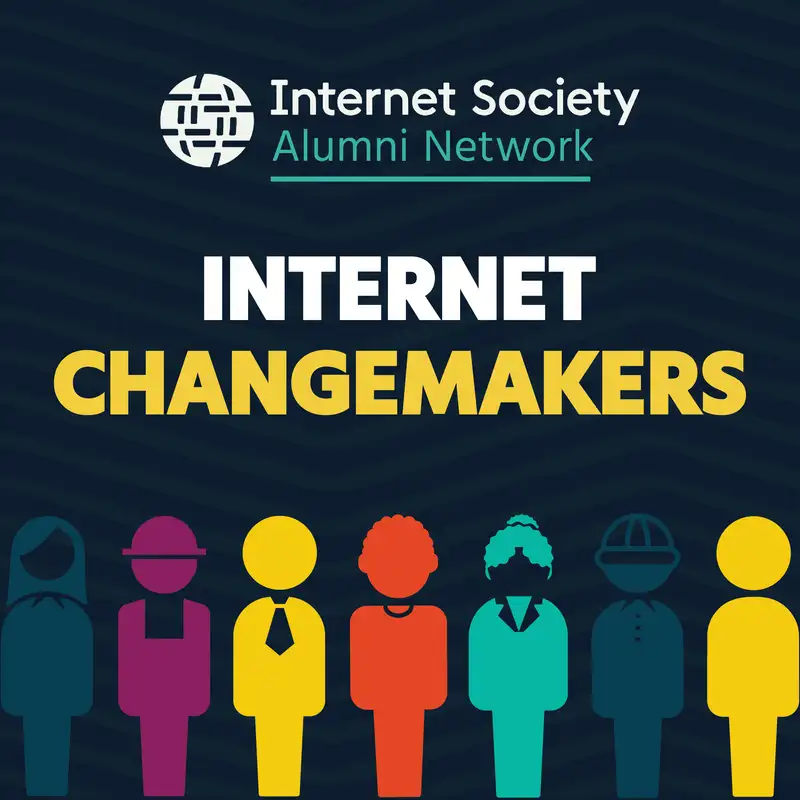The Digital Age Divide
In the fifth episode of Internet Changemakers, hosts Noha Ashraf AbdelBaky and Claire van Zwieten sit down with Kim Ochs, PhD., an educator and researcher specializing in lifelong learning and education technology, and Isaac Carrasco Ortiz, a sociologist and digital literacy advocate, to explore how the Internet connects—and often divides—different generations. This episode, The Digital Age Divide, underscores that the nternet is a shared space across ages—one that thrives when everyone feels empowered to participate with curiosity, confidence, and care.
Isaac shares how his journey into digital literacy work began unexpectedly through community teaching with older adults in Massachusetts. It’s one thing to work with older adults. It’s another thing to teach technology. But it’s a third thing entirely to teach older
adults about technology. Through that work, he discovered the importance of confidence, empathy, and cross-generational understanding in shaping how people connect online.
Kim offers a framework for understanding digital literacy and draws on her experience teaching multigenerational classrooms to challenge the idea that digital literacy is tied to age. We often assume young people are skilled and older adults are not, but both
groups are incredibly diverse. It has more to do with context, confidence, and motivation
than chronology.
The conversation also takes on the urgent issue of trust and safety online, especially for older generations navigating scams, misinformation, and privacy threats. Both guests emphasize that security skills are an essential dimension of digital literacy and agree
that building digital confidence—through mentorship, community programs, and intergenerational collaboration—is key to a safer, more inclusive Internet. The guests call for stakeholders to engage together and work towards a new digital human synchronicity, where learning and adaptation are seen as lifelong processes, not bound by generational stereotypes.
LINKS /RESOURCES
AmeriCorps
Bridging the Grey Digital Divide: Enhancing ICT Learning for Older Adults (UNESCO)
Digitally Empowering Older Adults in Mexico (ISOC Mexico Chapter)
Generation definitions
Geragogy
Laura Breeden, Internet Hall of Fame Inductee 2023
Massachusetts Executive Office of Aging and Independence
National Digital Inclusion Alliance
Web Content Accessibility Guidelines (WCAG)
CONSIDER A DONATION
The Internet is no longer optional — it’s vital to lives and livelihoods. Yet 2.6 billion people remain unconnected, and it’s being fragmented along national borders, threatening innovation and global progress. Online security fears are rising fast.
Isaac shares how his journey into digital literacy work began unexpectedly through community teaching with older adults in Massachusetts. It’s one thing to work with older adults. It’s another thing to teach technology. But it’s a third thing entirely to teach older
adults about technology. Through that work, he discovered the importance of confidence, empathy, and cross-generational understanding in shaping how people connect online.
Kim offers a framework for understanding digital literacy and draws on her experience teaching multigenerational classrooms to challenge the idea that digital literacy is tied to age. We often assume young people are skilled and older adults are not, but both
groups are incredibly diverse. It has more to do with context, confidence, and motivation
than chronology.
The conversation also takes on the urgent issue of trust and safety online, especially for older generations navigating scams, misinformation, and privacy threats. Both guests emphasize that security skills are an essential dimension of digital literacy and agree
that building digital confidence—through mentorship, community programs, and intergenerational collaboration—is key to a safer, more inclusive Internet. The guests call for stakeholders to engage together and work towards a new digital human synchronicity, where learning and adaptation are seen as lifelong processes, not bound by generational stereotypes.
LINKS /RESOURCES
AmeriCorps
Bridging the Grey Digital Divide: Enhancing ICT Learning for Older Adults (UNESCO)
Digitally Empowering Older Adults in Mexico (ISOC Mexico Chapter)
Generation definitions
Geragogy
Laura Breeden, Internet Hall of Fame Inductee 2023
Massachusetts Executive Office of Aging and Independence
National Digital Inclusion Alliance
Web Content Accessibility Guidelines (WCAG)
CONSIDER A DONATION
The Internet is no longer optional — it’s vital to lives and livelihoods. Yet 2.6 billion people remain unconnected, and it’s being fragmented along national borders, threatening innovation and global progress. Online security fears are rising fast.
The stakes are high. Help bridge the digital divide and defend a global, open Internet for everyone by donating today: https://donorportal.internetsociety.org/page/2025EOY
Creators and Guests
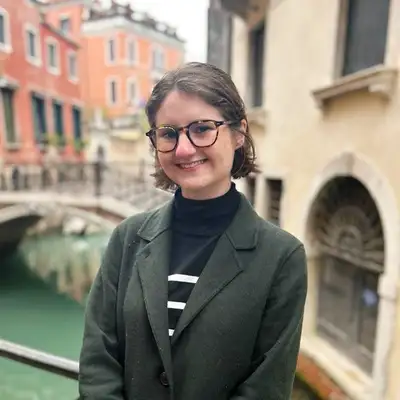
Host
Claire van Zwieten
Claire van Zwieten is the Alumni Specialist at the Internet Society Foundation, where she leads a global network of changemakers shaping the future of the Internet. With a background in International Relations, Chinese Language and Culture, and a master’s in Crisis and Security Management, Claire brings a sharp eye for global dynamics and digital resilience. She thrives on building connections across borders and elevating the voices of those driving Internet accessibility, safety, and inclusion in their communities.
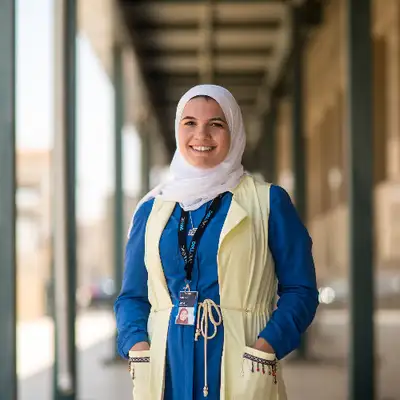
Host
Noha Ashraf AbdelBaky
Noha is a Storage Engineer, an ISOC fellowships Alumna, a member of ISOC Egypt Chapter and Youth SIG and an enthusiast of Youth Engagement and Women Empowerment in Internet Governance and dialogues about Tech policy.
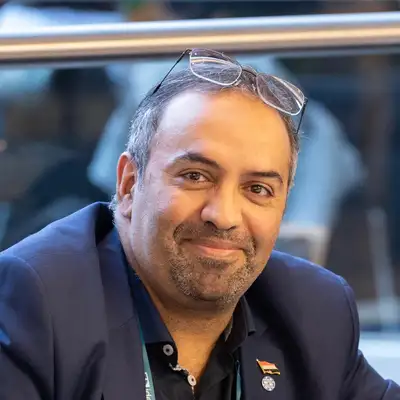
Producer
Abdulrahman Abotaleb
Abdulrahman Abotaleb is a Yemeni ICT engineer, journalist, Internet governance advocate and digital transformation strategist. He has a distinguished track record of leadership and engagement in Internet policy through key initiatives and events such as ISOC, ICANN, RIPE, and the AIGF. He is the founder of Yemen Science Network and has conducted exclusive interviews with Internet pioneers including Vint Cerf, Whitfield Diffie, and Robert Metcalfe. His work bridges technology, storytelling, and digital rights, amplifying voices from the MENA region.
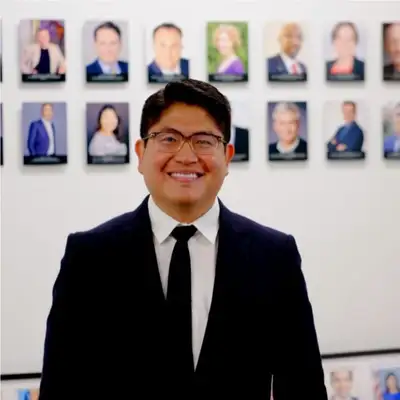
Producer
Alan Ramirez Garcia
Alan is a Peruvian policymaker, an ISOC Mid-career fellowship alumnus, and a lecturer at the Pontifical Catholic University of Peru. His central experience involves broadband policies, Meaningful and Universal Connectivity, Ethics, and international/multilateral affairs. He has been appointed a member of the UN IGF Multistakeholder Advisory Group (MAG) from 2022 to 2024.

Guest
Dr. Kim Ochs PhD.
Kim Ochs is an EdTech consultant and ISOC Mid-career Fellow Alumna, with extensive experience designing and implementing digital learning solutions across global contexts. Her work today focuses on advancing digital inclusion and education through innovative technology and cross-sector collaboration. Kim’s career spans technology research and private equity, start-ups, and higher education. She has held fellowships at the University of Oxford and Center for Democracy & Technology.
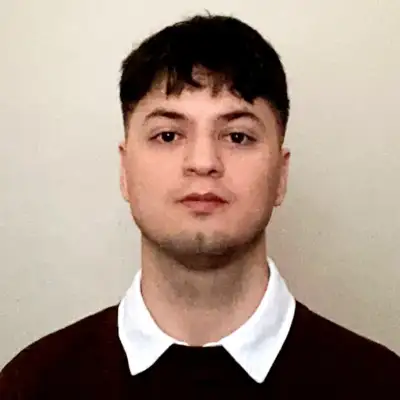
Guest
Isaac Carrasco-Ortiz
I love Chile, my homeland. My current world is the digital realm. In the end, I hope to become part of a world where humanity coexists with its digital realms, rather than them depending on us for their survival. Always happy to chat about anything and everything.

